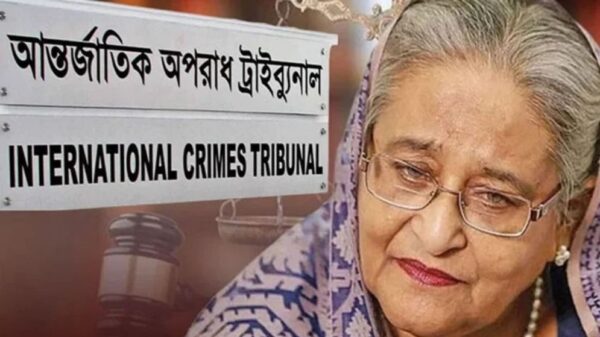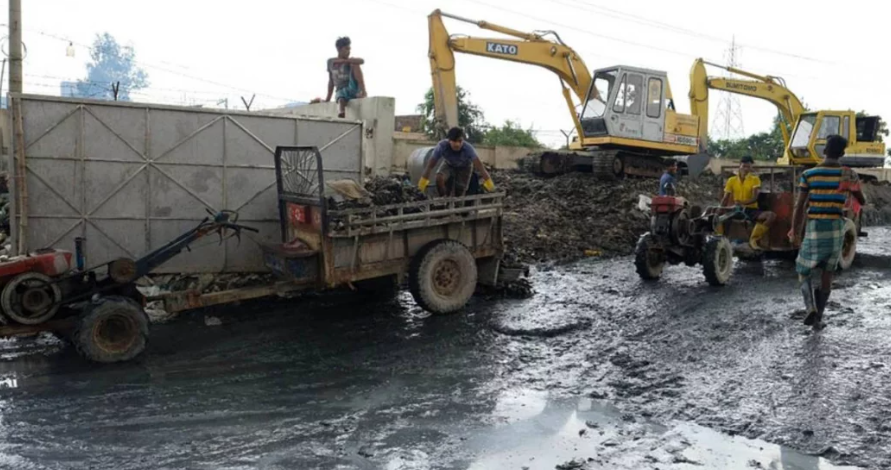Staff Reporter:
In a country where some calculations show pollution-induced deaths to be as high as 272,000 a year, polluters often get away with paying low amounts of fines even after committing similar offences over and over again.
“Coupled with the small sanctions that the court can impose even to those who have committed grave environmental offences, the current institutional framework has contributed to cultivating a culture of impunity for polluters,” states the World Bank in its latest Country Environmental Analysis (CEA) on Bangladesh released on Thursday.
It referred to official data provided by the Department of Environment (DoE) to show that the DoE imposed Tk468 crore in fines on nearly 10,000 environment polluters over the past 12 years (from FY2010-11 to FY2021-22) but could realize only Tk227 crore, less than half of the amount.
Referring to a 2021 study, the World Bank also said no difference was found in mean fines among the first, second and third instances of violations, revealing that the DoE did not impose higher fines in case of recidivism.
The World Bank report that attributes air pollution, unsafe water, poor sanitation and hygiene, and lead exposure for over 272,000 premature deaths a year in Bangladesh, states: “Although it is technically simple to impose regulations with specific fines for noncompliance, data from Bangladesh show significant problems in implementing those regulations, especially when enforcement authorities have limited capacity, and polluters do not have incentives to comply with the law.”
The CEA report notes that factors affecting low compliance include ad hoc application of the polluter pays principle, with low and/or arbitrary fines and sanctions that are not able to deter polluting activities.
Low fine realization linked to systemic loopholes
DoE data shows that in FY2021-22 it imposed sanctions on 2,157 individuals, institutions, industries and projects involved in environmental pollution, illegal hill-cutting and filling of reservoirs, including damage to the environment and surroundings throughout Bangladesh.
Given Bangladesh’s pollution rates, the World Bank considers these enforcement activities still very modest.
And yet, in these operations, the DoE imposed compensations for the environmental damages to a few entities, amounting to Tk51 crore, out of which it collected less than Tk25 crore.
The World Bank’s CEA report says the low collection rates are associated with loopholes in the system, such as polluters’ appeals to courts.
There are no requirements for alleged offenders to pre-deposit at least part of the imposed fine in a judicial account as a condition to file appeals. And the offenders are also motivated by imprecise regulations and excessive discretion of environmental officers, which might lead to errors and arbitrary decisions.
“For example, there is no specific guideline for the installation and operation of effluent treatment plants, for vehicle emissions control, chemicals and hazardous waste management, among other relevant topics.”
The lack of information on the DoE’s website on specific violations constitutes an additional driver for noncompliance with environmental law by impeding citizen-driven accountability, states the World Bank report.
It says that in 2021 and 2022, special magistrates conducted 1,979 mobile courts in collaboration with the DoE. Although mobile courts are more effective than regular inspections, they can only act on pollution cases related to the polythene ban, vehicle emissions, brick kilns and construction materials, the report adds.
“Therefore, the number of enforcement actions is modest, considering approximately 40,000 industries and 578,151 vehicles in the country in 2022.”
The CEA report identifies other challenges like (a) the DoE’s limited coordination with other public agencies and local governments, for example, for targeting enforcement to pollution hotspots and sharing information, facilities and equipment; (b) limited staff at the DoE to prepare the documentation needed to file and participate in judicial cases; (c) bottlenecks at environmental courts and delays in judicial cases, especially appeals from project developers against sanctions, which hampers fine collection by the DoE.
Besides, it notes, political interests also interfere with stricter environmental enforcement in Bangladesh.
DoE’s capacity challenge
Since the enactment of the Environment Court Act, the DoE has filed very few cases in the existing environmental courts. From July 2018 to June 2022, the DoE filed 465 and 358 cases before special magistrate courts and environmental courts, respectively.
As a court order is a condition for imposing penalties (under Section 15 of the Environment Conservation Act), the number of individuals and industries being sanctioned for their environmental offences is minimal.
Additionally, since the DoE does not have enough staff to follow up on those cases after filing them, the department does not know the results of judicial orders, such as the value of fines imposed by a court and their enforcement.
With limited staff, the DoE’s Law Wing focuses on cases at the High Court, mostly related to appeals from brick kilns to rejected environmental clearance certificate (ECC) applications.
According to Thursday’s World Bank report, there were 590 and 934 pending cases in special magistrate courts and environmental courts, respectively, till September 2022.
To overcome such backlog, environmental interest groups, including NGOs, have filed public interest litigations in the Supreme Court on environmental matters. As a result, as of September 2022, there were 1,325 pending cases of environmental nature in the High Court Division out of 2,028 writ petitions. The DoE has provided 1,033 compliance reports in those cases.
A key driver to the limited number of cases filed in Bangladesh’s environmental courts is the legal requirement for the DoE to formally support any claim presented to a court.
Most individuals, but particularly those with limited resources, are unable to follow the lengthy procedure before the DoE and later at environmental courts.
Noting that Bangladesh’s legal and institutional framework for environmental management is still evolving, the World Bank, however, sees opportunities to further strengthen the country’s environmental systems and ensure it performs fundamental functions and coordinated actions to address environmental degradation.
It further notes that the Bangladesh government is already working on those interventions. “The Bangladesh Environmental Sustainability and Transformation (BEST) Project (2023-28) will finance activities to improve environmental governance and infrastructure, enable green financing for air pollution control and pilot initiatives for vehicle emission control and e-waste management.”










































